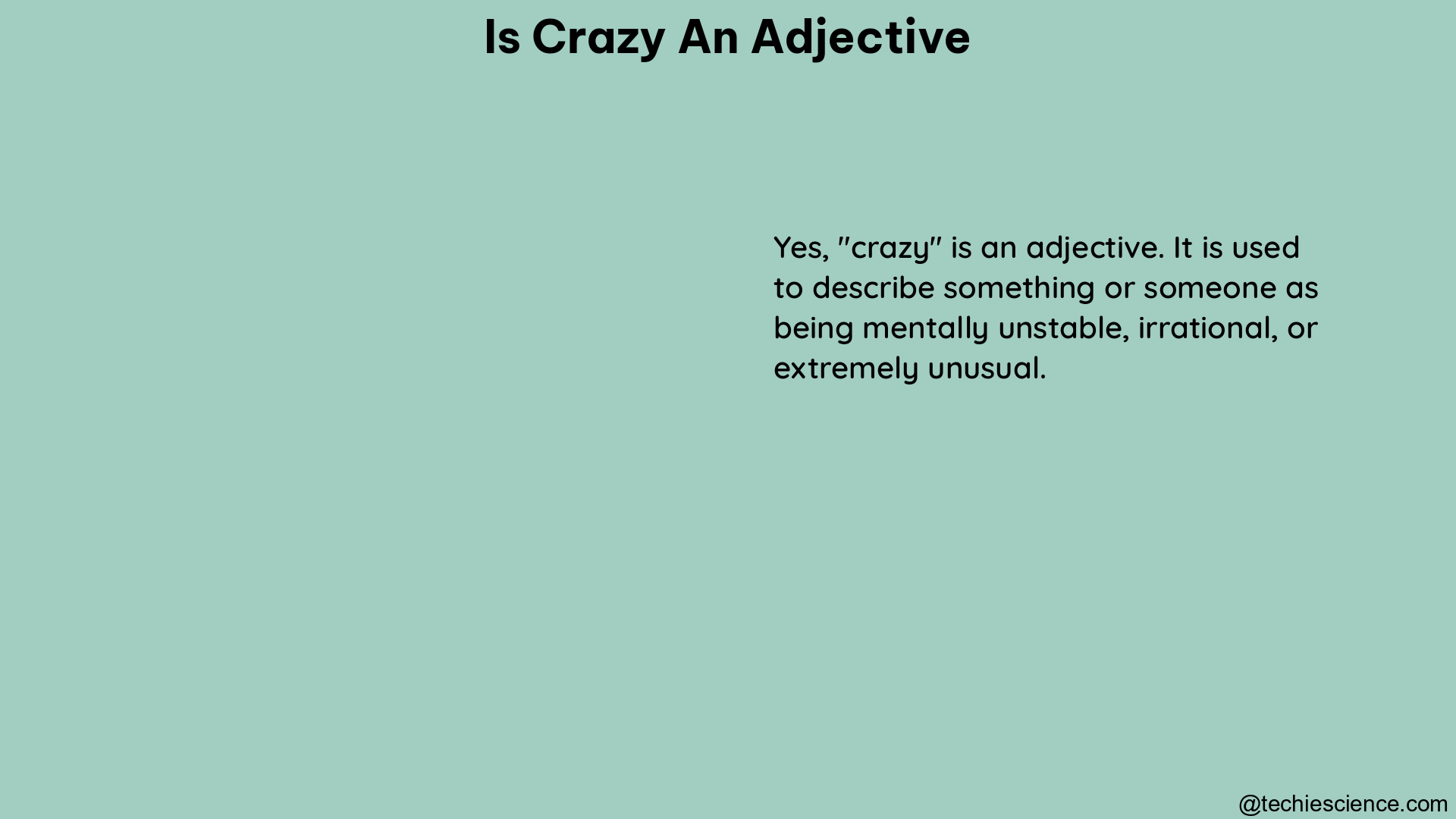Yes, “crazy” is an adjective that has multiple meanings and uses, both formal and informal. Understanding the various aspects of “crazy” as an adjective is crucial for effective communication and avoiding potential offense.
Formal and Informal Uses
Insane or Mentally Unsound
In a formal sense, “crazy” can describe someone who is not mentally sound or lacks reason in their thoughts or actions. This usage is often considered offensive and should be avoided in formal writing or professional contexts. For example, “He’s been acting kind of crazy lately” (describing someone’s mental state).
Unusual or Unconventional
Informally, “crazy” can describe something or someone that is unusual, unconventional, or outside the norm. This usage is more common in casual conversation and writing. For example, “The crowd went crazy when the band came on stage” (describing enthusiasm or excitement).
Synonyms and Antonyms

Synonyms
Some synonyms of “crazy” include bizarre, absurd, insane, foolish, unreal, fantastical, strange, and fantastic.
Antonyms
Antonyms of “crazy” include reasonable, realistic, sane, and sound.
Grammatical Specifications
Comparative and Superlative Forms
The comparative form of “crazy” is “crazier,” and the superlative form is “craziest.”
Adverbial Form
The adverbial form of “crazy” is “crazily.”
Noun Form
The noun forms of “crazy” are “craziness” and “crazies” (plural).
Theoretical Explanation
The adjective “crazy” can be used to describe a wide range of situations, from mental states to unusual behaviors or extreme enthusiasm. Understanding its various meanings and connotations is crucial for effective communication and avoiding potential offense.
Advanced Hands-on Details
Idiomatic Expressions
“Crazy” is often used in idiomatic expressions, such as:
– “Go crazy” (to become very angry or excited)
– “Drive someone crazy” (to annoy or frustrate someone)
– “Like crazy” (to do something very quickly or intensely)
Collocations
“Crazy” often collocates with verbs like “go,” “drive,” “be,” “seem,” and “sound,” and with prepositions like “with,” “about,” or “over.”
Reference Links
- https://www.merriam-webster.com/thesaurus/crazy
- https://www.dictionary.com/browse/crazy
- https://www.collinsdictionary.com/us/dictionary/english/crazy
Hi… I am Sowndharya Jagadeeswaran, a university rank holder in M.A. English Literature. I have also done my master’s in Business Administration. Inquisitive as I am, my interest in action-oriented research helped me publish research papers in reputed journals. Now, as a career, I am an instructor where I teach young and adorable students the intricate technicalities of Public Speaking and Creative Writing. I also enjoy writing articles on topics I specialize and research in.
You can connect with me through LinkedIn.-